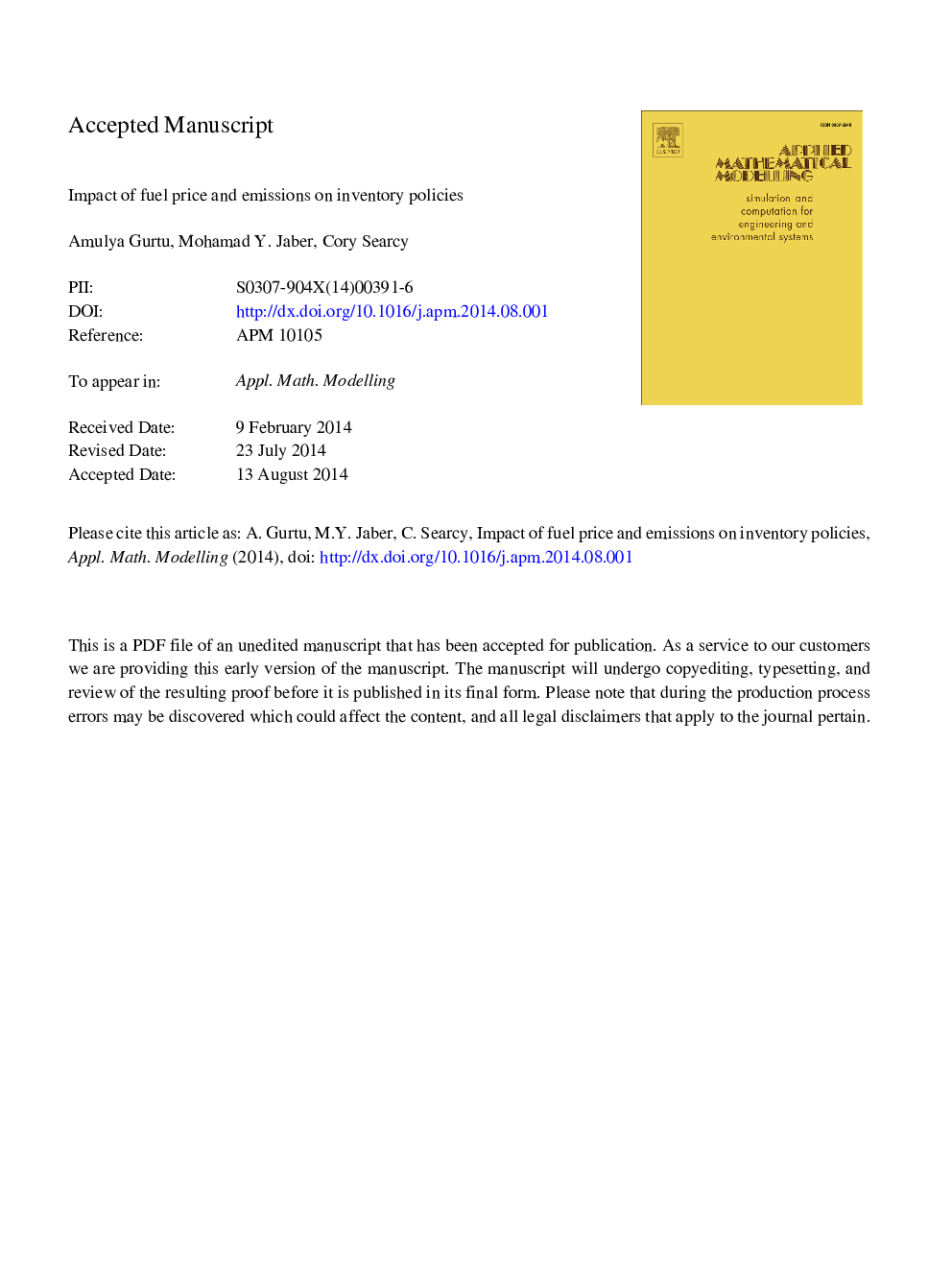| Article ID | Journal | Published Year | Pages | File Type |
|---|---|---|---|---|
| 8052604 | Applied Mathematical Modelling | 2015 | 41 Pages |
Abstract
The purpose of this paper is to analyze the impact of changes in fuel prices and the imposition of a carbon tax on emissions from transport on shipment lot sizes and supply chain costs. An analysis is done to show that increases in fuel prices should be dealt with differently than other costs. Further, a function to calculate future fuel prices has been developed. This function has been used to calculate transport cost in the future. The EOQ models have been modified to include increasing transport cost and a carbon tax to demonstrate its impact on various inventory policies. Due to increases in fuel prices, the cost of every subsequent order will also increase, thus resulting in an increase of average order cost for all the shipments in a production cycle. Organizations that have their vendors in relatively close proximity will be at an advantageous position in managing their supply chain costs more effectively in the future. On the other hand, organizations that have invested heavily in global supply chains will need to re-examine their supply chain strategy to overcome cost challenges. This research presents a new challenge for supply chains/logistics management strategies for organizations with global supply chains.
Related Topics
Physical Sciences and Engineering
Engineering
Computational Mechanics
Authors
Amulya Gurtu, Mohamad Y. Jaber, Cory Searcy,
